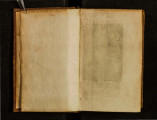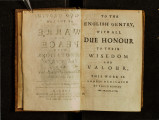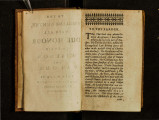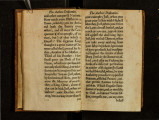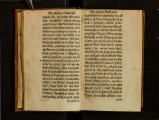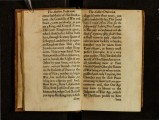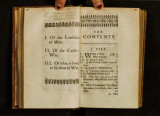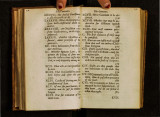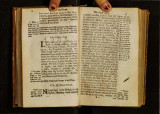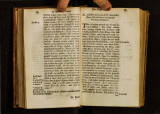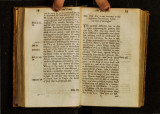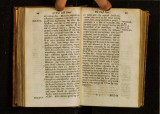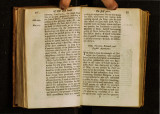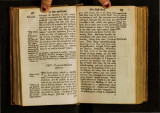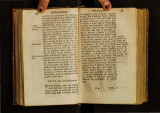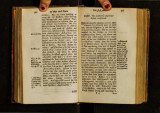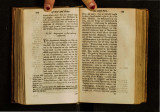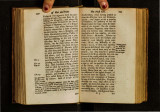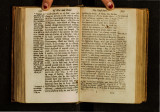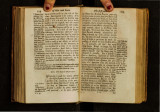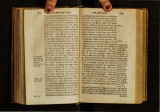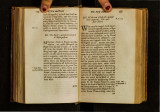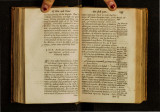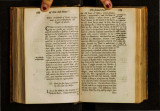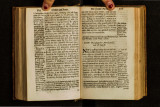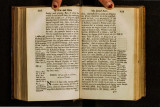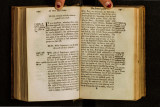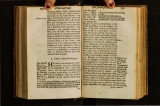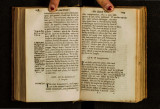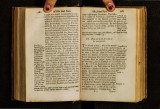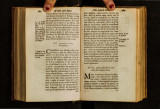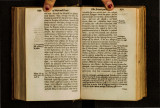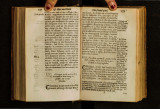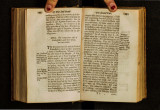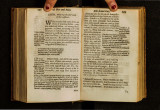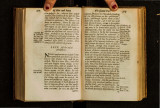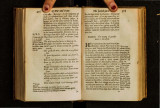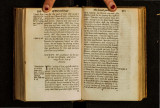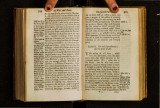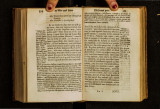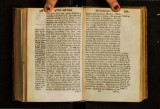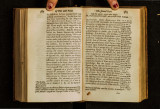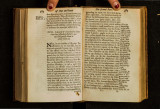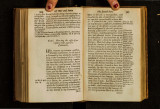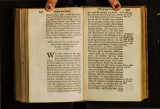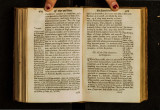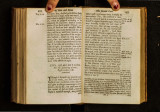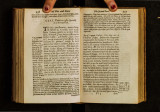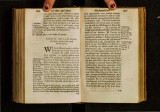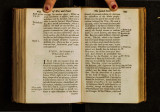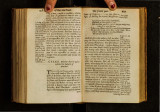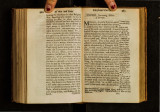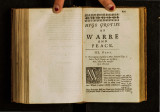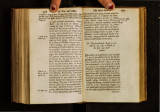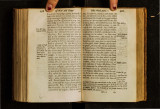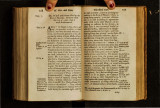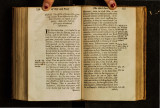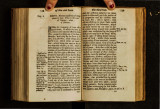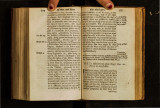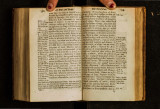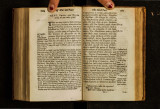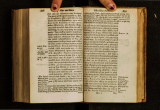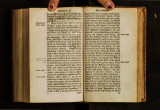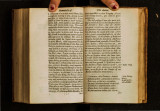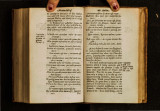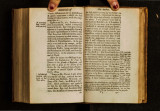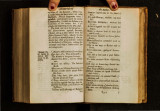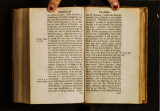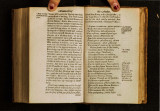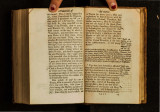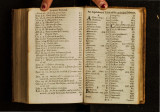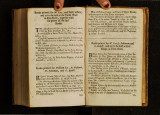| OCR Text |
Show 6'2 6 of War •ruJ PeAte t Servius ad_ vim t noted in they wor_dpueri ,€hildren, illud Ma:onts: by vvhich they figmficd iervams.For their c!•'4d1tt Ja~ 'WOtk, as vve hne fa.id , maintenance is tJ~:;.'f.'~:'de due 'to fcrvants. Cat~: Provide well for tbe l;t'IJt{. family ) cloaths agamft cold, food againft "I< Cicero: opera hunger. There is fomewhat, faith Senerxigend~ t, ,u[l" ca t , 1vhich a Mafter ought to afford his Pl'lfbcpd~• •A aft~fervant, as food and apparel!*. The cruel- .!'> .. ·• fUI7vtt 'TeJ f h . . . h C • I"L , 1 ~ Oecon. f ty o t e Stctltans t , w o ramuned the ~~~i.rach. H· 2.S'· e/lthenian Captives, is condemn' d by the apTI: 1!1 nu.J\lc:c hiiJorians. Farther ' Seneca in the fame ~ ip)'& ~xi'I'IJ.A place proves , a (ervant is free in [orne tel~·. IJS~~~Iosn- refpe&, and has whet'ewith to do a be· gt" pt t1i11v o~ mtmo·· ne fi t~ , 1'f 11 e h. a t.ll do ne, w ha t exceeds the raure'I"{!ce&a mc~ture of ferv1le duty, what is d(.menot lib.t. upon commat d but voluntarily , where fervice i~ turn' d into the affeCtion of a friend, wlu~h he explains at large.Wherephorm. 4t:l. 1. to 2 grces, it a fervam (as it is in Tere~1cc) fc. I. defrauding his Gcr ius hath favcd any tbing, or by his diligence at fpare time& V d r. hatb gotten any thing , that in fome fort "v' is,~;r sr,uod io:ef i1_cor-- . h .,. N. . . . l h h Ii lS own . ~r JS 1t matetla, t at t e madop~ fieri M.t8:crmay, a_c hts pleafure, take awayor liberali~ tra- diminiili. his tervams flock • for, he will lland1, 11u; ci- not do what is rioht 1f he do it wirhout htJaer ifla6t aiuot; cv,e aftri.rt C:lUrJ e ; by Ca ti'Jre ::::>I u'n de rfn1a n d not on Iy remi'ft?uopn·u, pund'hmcnt, but the necdli~y of che Ma· ioncc/Jion,q; ue fier ; foi the proMt of the fervant is iubor· pt~z'l~art a(· dinatc to dH~ profir or intm·H of the Ma· 9u~a ~.n fl~dv Her ; yea , more: than the wealth of a Ci- J'a-1cere l&ear. tl.Z en· tot he c·. cy. The rerco re , as we rea d, that Clients have comribuu:d co th€·ureof thei~ Patrons1and filbjecb_of their King~ . The third, part.· 6 27 'fo have fervams to the ufes of their Ma~ ftc:rs *;if a daughter be to be preferred if a* . ~aptivc ion to be redeemed, or if any like q14~J"JuciJ~~~Hil· occa~_on had. fallen our. Plrny, as him-tft,qttinferv1u f~lf !alth m hts Epiftles , grlnted leave to &tt.m. pw~tio dahts iervants to make certain tdlaments rtmtzfit? Dat ~ · . h · . as tamtn domzno It wete, t at 1s, to dtvtde co oive co be r, h · · ' b ' "J~eO TI.Un/'1• que~c wHhm ~he family. Among fame Nattons a fulJerright of gemng an ellate was granted unto ~ervants 'as there were feveral degrees of iervitude. To this internal jufl:ice which we expound, the Laws, among many Nations' have aHo reduced that external nght of Mafl:ers. For a mona ,. the Greeks, it was la vvful for fervants ill · ufed *,to demand that they might be fold~* wesLm ,:,.,.,;,;' ~nd ac Rome, to fly unto the; Hacues' and tmplore help of the Governors aoainff ri-gour '• or. hunger, or intolerabl~ in jury. But, twill proceed not from thict rioht ~uthfrot~ hum~nicy _and beneficence(' ye; In(lit. dehi4riui ~c .. as IS due iomenmes) chat after lonafui velal. lervtce and very great, Ltberty be giv~n t~ L.~•numifs.'D· ~ fervanc.; Afrer chat by the Law of Na- dptl{l, & jtl. ttonsfervltude came in, there followed che benc:fit ?f manumiffion,[aith Ulpianud. An exa~ple whereof, we have in that of TtreH&e: · "rbou. waff my fervant : and I mad~ . I theefr(e, ' Becaufe thou didft thy fervice * Li- * Audr. act. i ·• , . . berally. I. Se1''l.libas l i • S·A f1l via·n· *faith ' it is a chino ofd 'I . r hera/Iter. Ira· - u at yu1e, M5. rede, ervant~, though n~t of the belt ' yet'* Lib, 3· S 1- ~· of |




